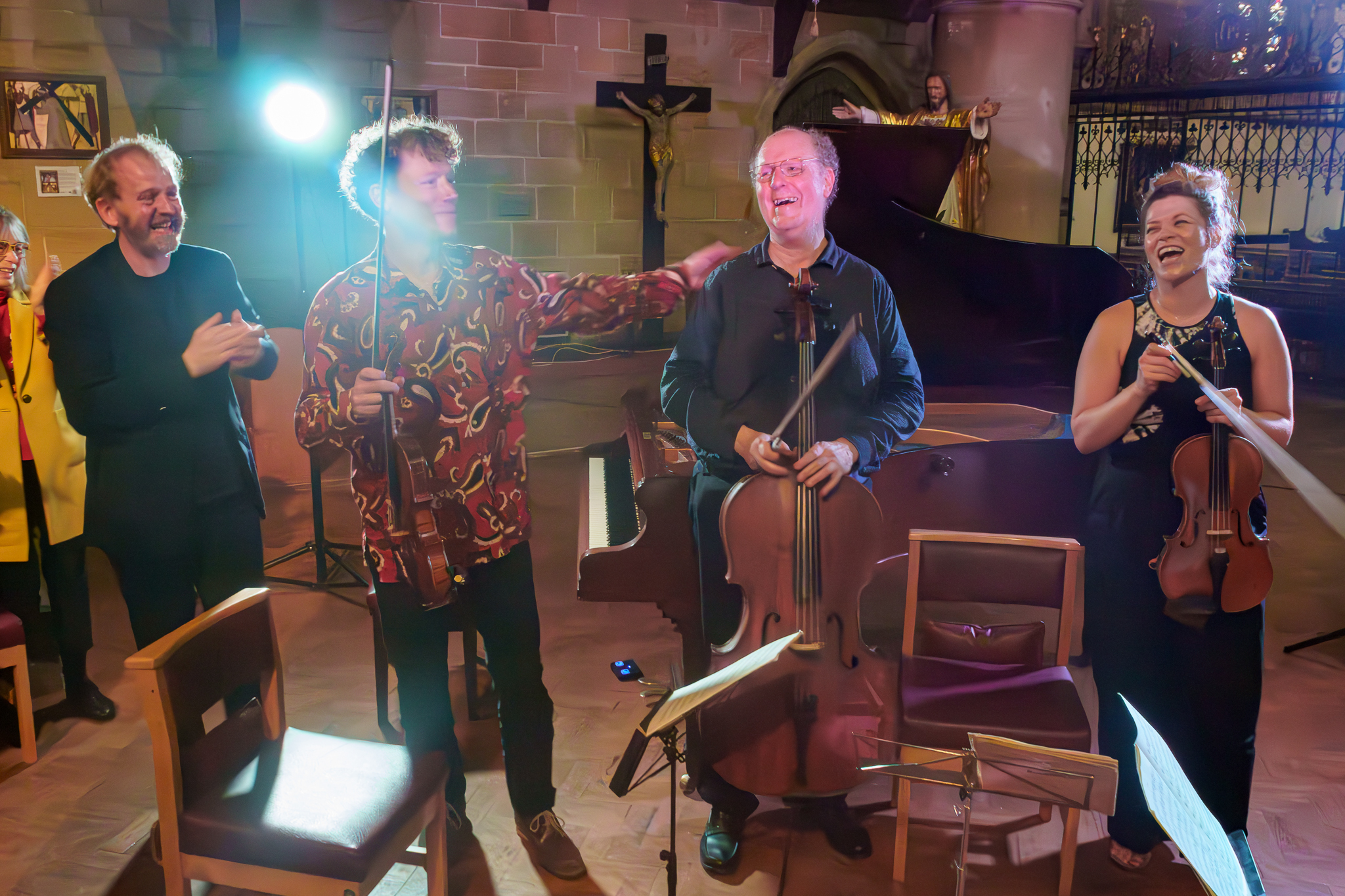We were delighted to have our largest and, dare we say, most appreciative audience yet at our most recent concert at Christ Church. Thanks to all who attended and supported us. Here is a review of the concert by Victoria Kingham at Hastings Independent Press.
Max Baillie and Guests
If you think you don’t like classical music, if you think it’s boring, difficult, too long, can’t dance to it, only for old people, go to a St. Leonards Music concert and you are guaranteed to change your mind. Max Baillie is a violinist of extraordinary gift, and an engaging impresario. His lucid introductions to his concerts make them not only intelligible but fun. He prefaced this concert – Beethoven’s Trio No. 3 and Brahms’ Piano Quartet No. 25 – with two short readings from The Lexicon of Musical Invective, a collection of horrid things critics and composers have said about composers. Beethoven “first fills the soul with sweet melancholy, and then shatters it by a mass of barbarous chords. He seems to harbour together doves and crocodiles,” wrote one critic in 1810. Of Brahms, in 1886, Hugo Wolf wrote that he had perfected “the art of composing without ideas”, and of his “mousy obsequiousness”. Tchaikovsky pulled no punches however and wrote in his 1886 diary that Brahms was “a giftless bastard!” [1886].
Baillie’s trio (Alasdair Beatson on piano, Alexander Baillie on cello) proceeded to the Beethoven Trio with the brilliance and effervescence of three musicians with complete mastery over their material. I have rarely seen a more spirited, intelligent, or enjoyable performance. To say they played it correctly, faultlessly, would be to understate their achievement. Under their hands, Beethoven’s music had grace, shape, voice, dialogue, beautiful cohesion – endless qualities over and above mere notes. They made evident the astonishing variety within its four movements, a question-and-answer first movement with some crazy pizzicato strings and a glittering waterfall of notes from the piano, then a (very brisk!) lullaby, a minuet and trio and a last movement of fiendish speed and difficulty, ending with an elegant little flourish, pause, and stop.
Popular musicians strive on stage to mimic the highly-produced sound of a recording. To a lesser extent, recorded jazz sometimes seems more fluent (though perhaps less exhilarating) than live jazz. But hearing a classical quartet of this quality play live, at close quarters, in a space with an acoustic designed specifically to sound Heavenly, watching them move through rhythmic patterns, effervescing, thoroughly enjoying their interconnecting phrases, and above all sounding loud, transcends the quality of any recording.
The enthusiasm of the audience is always apparent in Christ Church, not least because most people know one another and everyone greets everyone – in the interval there was quite a party atmosphere. People settled, however, and the trio were joined by Anne Beilby, a notable viola player, for the Brahms. The contrast between the two compositions, (pointed out by Baillie in his introduction) became particularly apparent. Brahms’ melodies are stately, more marked, less surprising than Beethoven’s. The drama of this piece is in the dynamics, the build, the depth, the song-like development, the fortes and the pianos, the emphasis on the lower register and the melodic swell and ebb. In the first movement, the piano talks to the strings (in contrast to the Beethoven Trio where the strings talk among themselves and have an independent conversation with the piano). In the second, the cello forms a shelf of dizzy triplets underpinning the other strings and piano in a lyrical melody which rises in intensity then fades twinkling away. There’s a beautifully elegant third movement with a kind of dance in the middle in a slow three, and a breathtakingly fast, virtuoso-difficult fourth movement.
These four are indeed rare musicians of the highest order. Hearing these compositions played at this level of expertise with this level of commitment and sheer pleasure in the exposition, it is hard to imagine any music less reptilian, or less mousy.

